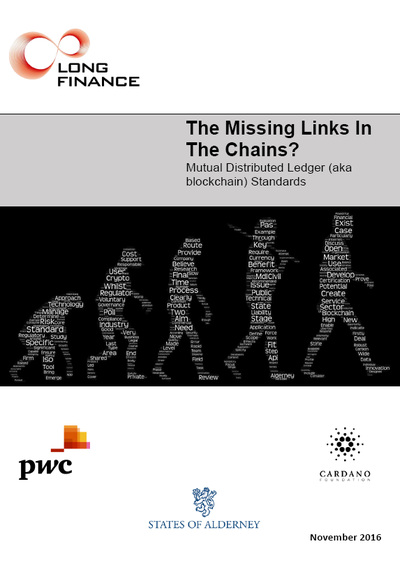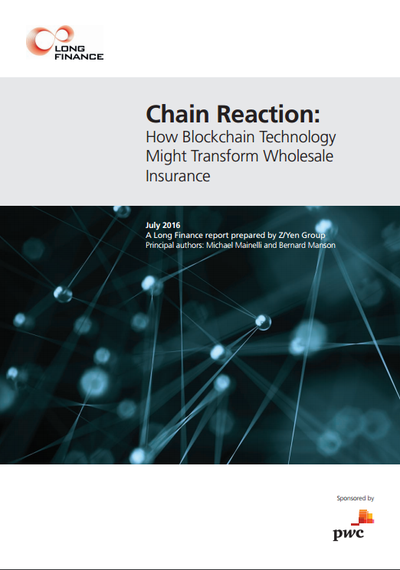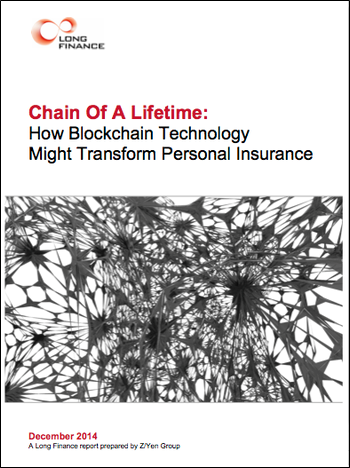Insurtech Academy
Research by Z/Yen and PwC into the potential of MDL (aka blockchain) applications within the insurance sector, shows that MDLs may prove a transformational technology.
Participants in the research recommended a focus on analysing the business case for implementing three use cases:
- Placement and contract lifecycle,
- KYC/AML, and
- Claims management.
The InsurTech Academy has been established as a collaborative industry vehicle that will enable market participants to confirm that the technology can produce the expected benefits and to provide a roadmap for implementation.
For an overview of the InsurTech Academy, please click here.
Background
Our “Chain Reaction” report (link below) and other reports reviewed the potential for distributed ledgers in insurance with well over 100 insurance industry people globally. MDLs are potentially a transformative technology for handling data and transactions across organisational boundaries. Use of a single globally available, verifiable, and high-integrity data set would allow insurers to reengineer the way they transact with each other and with clients, while removing the need for a central processing party and repeated reconciliation to internal records.

The Missing Links In The Chain? Mutual Distributed Ledger (aka blockchain) Standards
by Michael Mainelli and Simon Mills, Z/Yen Group Limited.
Long Finance, States of Alderney, Cardano Foundation, and PwC
November 2016
74 pages

Chain Reaction: How Blockchain Technology Might Transform Wholesale Insurance
by Michael Mainelli and Bernard Manson, Z/Yen Group Limited.
Z/Yen Group and PwC, Long Finance
August 2016
58 pages

Chain Of A Lifetime: How Blockchain Technology Might Transform Personal Insurance
by Michael Mainelli and Chiara von Gunten, Z/Yen Group Limited.
Z/Yen Group, Long Finance
December 2014
51 pages
The technical success and excitement surrounding Bitcoin has shown that distributed ledgers can work robustly in harsh environments. Both start-ups and major firms worldwide are now exploring in earnest applications for traditional financial markets.
Based on interviews market participants in insurance, the conclusion was that, provided a core of firms within a particular market area took part, there seemed likely to be a strong business case for a number of possible applications of distributed ledgers. The top candidate applications were:
- Documentation of placement and contract lifecycle;
- KYC/AML;
- Claims Management.
The report recommendation was that a ‘coalition of the willing’ be formed from market participants to review the functional requirements and business case for one or more of these applications. The collaboration would produce at least one advanced proof-of-concept application to allow wide analysis within the member firms prior to a go/no go decision on developing and implementing a live application. The proof-of-concept application should move towards a wider supporting infrastructure. Given that all three applications would rely on robust storage of arbitrary types of digital document, the most likely proof of concept would be an MDL application to store and transmit arbitrary files; encryption would ensure that only those with appropriate permission could read each file.